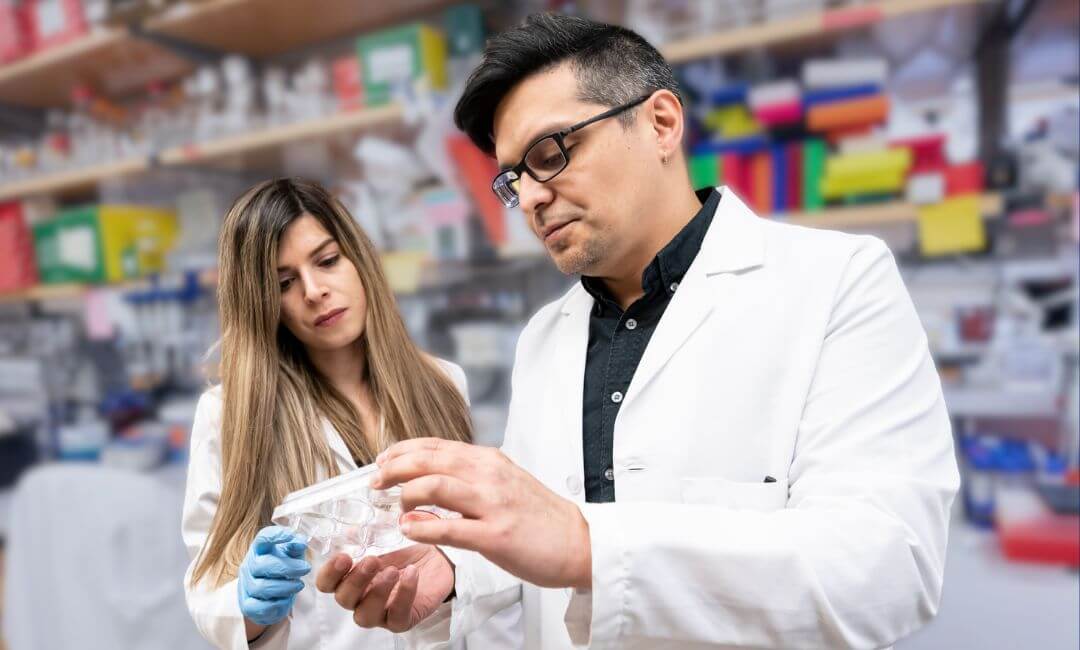The tripartite mission of the Department of Medicine encompasses clinical excellence, first-rate education, and world-leading investigative research. For many research groups at Pitt, this final category is often driven forward by the efforts of our postdoctoral research community. Currently comprised of around 150 members, this highly skilled group provides much of the intellectual and technical expertise that allows scientific breakthroughs to be made on a daily basis. As such, postdoctoral fellows in the Department of Medicine form part of the bedrock of our research output.
While a period of postdoctoral training is often a necessary bridge between graduate studies and a desired career outcome, postdoctoral fellows face a number of unique challenges. In a relatively short period of time, fellows must obtain all of the necessary additional training (e.g., scientific, technical) and metrics of research success (e.g., papers, grants) they need to be competitive in their chosen field. While the majority of the ~70,000 postdoctoral researchers in the United States begin their journey after graduate school with a goal of obtaining an independent academic position, only around 10% will end up with this outcome. As such, postdoctoral training needs to encompass a wide range of features that prepare fellows for careers in industry, policy, government, education, and beyond, as well as academia.
Life as a postdoctoral fellow in the United States can be additionally challenging for overseas researchers, who comprise around 50% of the fellows at Pitt. In addition to adapting to a different scientific culture and dealing with the U.S. immigration system, international postdoctoral fellows need to navigate a funding landscape controlled largely by NIH policies. Understanding which programs are restricted to U.S. citizens or permanent residents, and how the length of one’s postdoctoral training period affects your eligibility for certain programs, can be confusing at best.
To ensure that all of the fellows in the Department of Medicine receive the support they need during this phase of their career, the Postdoctoral Training Program (PDTP) was established. The program consists of a number of career development and networking events held throughout the year, with two major events as highlights. In the fall/winter, each postdoctoral fellow in the department meets one-on-one with the Associate Director of the PDTP for their division or institute to discuss career goals, scientific progress, and future plans. These annual Milestone Meetings allow postdoctoral fellows to obtain additional career development support beyond their primary mentor, with the goal of helping postdoctoral fellows focus on their next position. In addition, these meetings are used to highlight career development resources for postdoctoral fellows within the department (e.g., grant writing courses), as well as those offered by the School of Medicine through the Office of Academic Career Development and the University of Pittsburgh Postdoctoral Association. In the spring, a special Postdoc Career Session is included in the annual Research Day, where former Department of Medicine postdoctoral trainees with careers in academia, industry, government, and the legal profession discuss career paths with current postdoctoral fellows, as well as an opportunity to network with potential recruiters for the next stage of their career.
In addition to these annual events, the PDTP holds a number of networking meetings for the postdoctoral community. Earlier this fall, the PDTP held a lunch for the annual National Postdoc Appreciation Week and hosted Dr. Lori Conlan, Director of Postdoctoral Services at the NIH in Bethesda, for a talk titled “Career Planning for Scientists – How You Can Make a Plan to Find Your Career.” These informal events are designed both to provide a venue for peer networking and to gain new insights on the career development opportunities available to postdoctoral fellows in the department.
The effort expended by postdoctoral fellows in the department leads to major scientific discoveries—many of which would be impossible in their absence. In return, it is beholden upon group leaders at Pitt to ensure that postdoctoral fellows receive the support necessary to thrive. By providing these resources, the PDTP aims to provide postdoctoral fellows with the assistance that they need to advance in their chosen career.
If you would like any further information about the PDTP here in the Department of Medicine, please feel free to reach out to any of the members of the program leadership listed below:
Director:
Iain Scott, PhD // iain.scott@pitt.edu
Cardiology, Classical Hematology, and the VMI
Iain Scott, PhD // iain.scott@pitt.edu and Delphine Gomez, PhD // gomezd@pitt.edu
Endocrinology and Metabolism
Ali Kohan, PhD // akohan@pitt.edu
Gastroenterology, Hepatology and Nutrition
Gavin Arteel, PhD // gearteel@pitt.edu
General Internal Medicine
Cristina Murray-Krezan, PhD // cmmk@pitt.edu
Geriatric Medicine and the Aging Institute
Aditi Gurkar, PhD // agurkar1@pitt.edu
Infectious Diseases
Nic Sluis-Cremer, PhD // nps2@pitt.edu
Malignant Hematology and Medical Oncology
Nadine Hempel, PhD // nah158@pitt.edu
Pulmonary, Allergy, Critical Care, and Sleep Medicine
Melanie Königshoff, MD, PhD // koenigshoffm@upmc.edu
Renal-Electrolyte
Marcelo Carattino, DVM, PhD // mdc4@pitt.edu
Rheumatology and Clinical Immunology
Tim Oriss, PhD // tio5@pitt.edu

